Startup breeding billions of high-protein Black Soldier Flies for livestock
Flies are the food of the future. Maybe not for humans, but certainly for animals. Flies eat absolutely anything, breed like crazy, they’re extremely high in protein, and they’re much more sustainable as a foodstuff than anything that grows in the ground.
Chickens love them, pigs love them, so do fish and shrimp. But farmers who have the skills and expertise to rear chicken or pigs aren’t necessarily too hot on the advanced biology and entomology needed to cultivate billions of flies.
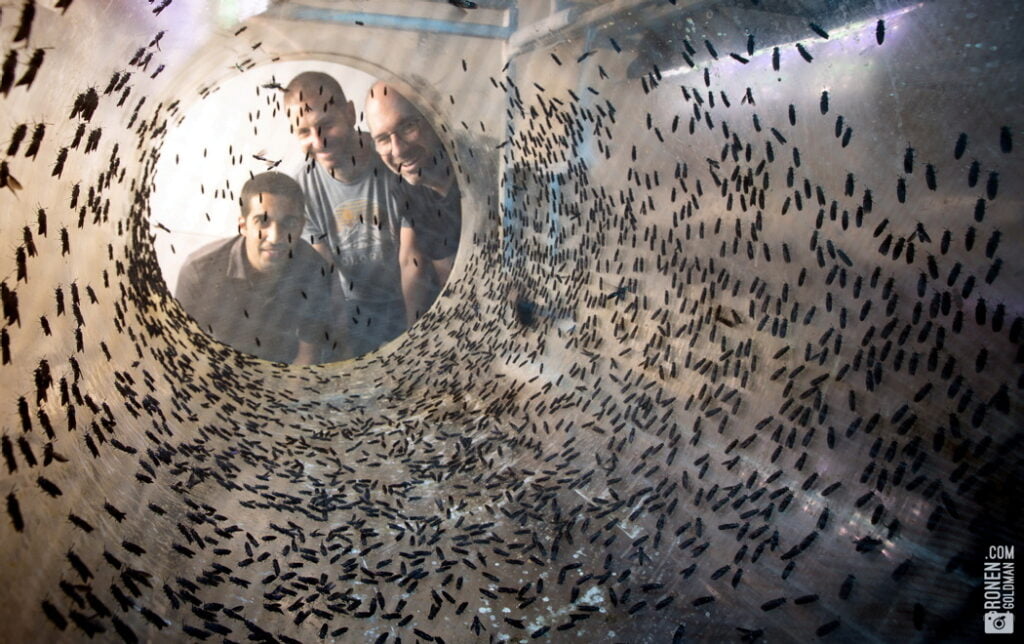
FreezeM, a startup based at Kibbutz Nahshonim, in central Israel, takes the pain out of the process by breeding and supplying ready-to-use flies – in suspended animation, so they can easily be transported.
It is breeding one particular species of fly – the Black Soldier Fly (BSF) – on an industrial scale. It’s not alone in doing that, but the breakthrough is that it’s able to manipulate their metabolism, halting their growth for two weeks.
Farm animals don’t actually eat the insects themselves. It’s more complicated than that. Farmers buy packages of neonates – the larva, or maggots that have yet to hatch into flies.
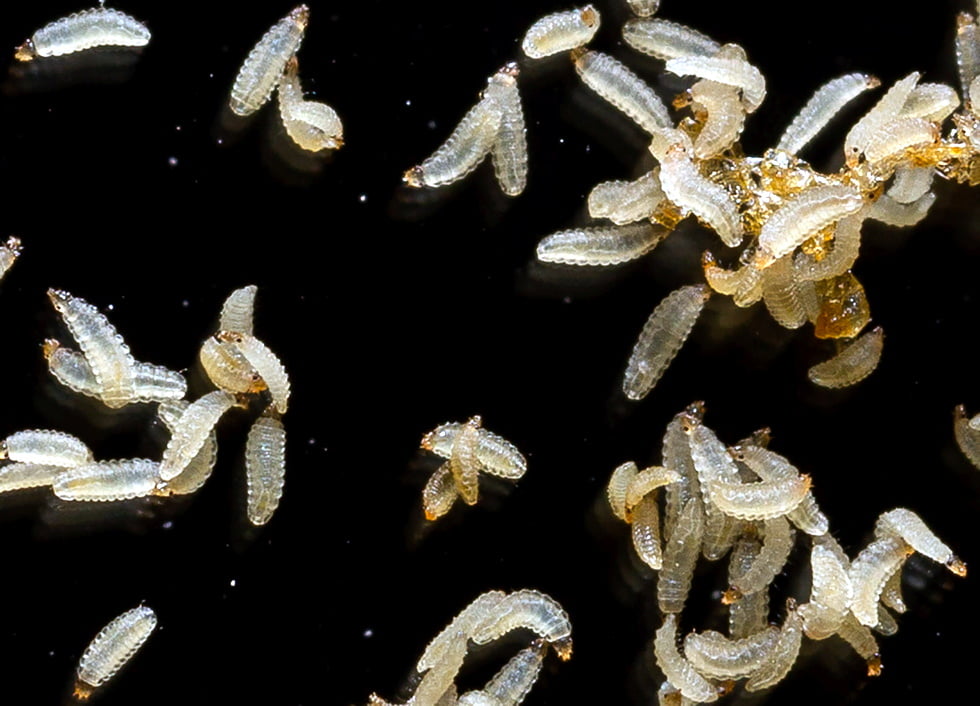
They feed these neonates on anything from agricultural waste to brewery by-products, but before they progress to the pupa stage, when they become flies, they process them into protein meal, and that’s what they feed to their livestock.
FreezeM says it’s addressing a desperate need for sustainable alternatives to soy and fishmeal, the most widely-used proteins for animal feed.
The company takes its name, FreezeM, from its early involvement in freezing BSF eggs (rather than larvae). Now it is also able to pause their development, at room temperature, after they hatch into larvae.
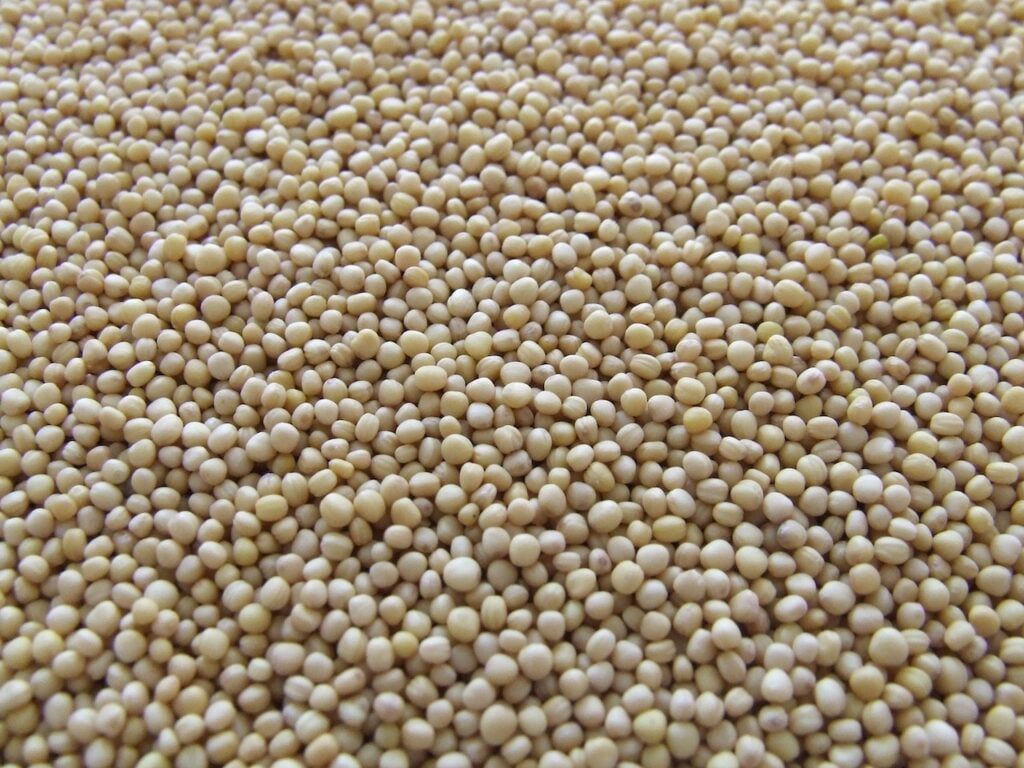
“The challenge is to do this at scale,” says CEO Dr. Yuval Gilad, who jointly founded the company with Dr. Idan Alyagor and Dr. Yoav Politi, from the Weizmann Institute of Science.
“You need to produce very large amounts in a very efficient and consistent manner in order to replace existing components in animal feed.”
Until now farmers who wanted to feed insect protein to their animals had to grow their own flies. That’s a difficult, unpredictable and expensive business. FreezeM does that for them, simply and sustainably.
It deliver boxes of tiny, BSF larvae – each less than 0.5mm – in suspended animation and the farmer revives them simply by opening the package and placing them on organic waste.
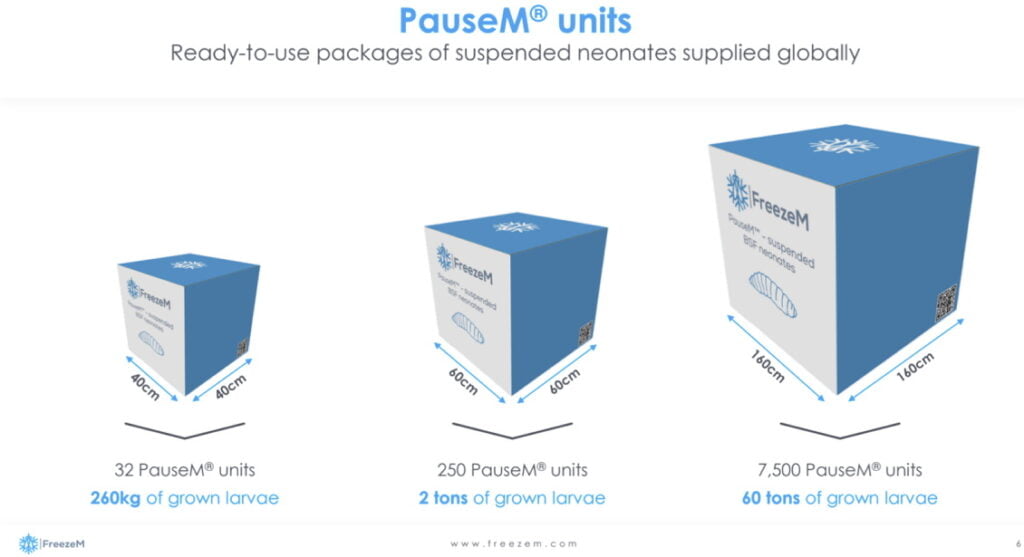
In just two weeks they grow to 8,000 times their original size. That’s not a mistake. “It’s equivalent to a baby growing to the size of three elephants in two weeks,” says Gilad.
No wonder the BSF is known as nature’s “ultimate recycling machine”. The larvae grow and grow into a high-quality food source, containing 45 per cent protein and 30 per cent fat.
A box of 32 small plastic packages of BSFs – called PauseM – measures 40cm by 40cm and would fit neatly on an ordinary chair.
In two weeks the neonates inside that box will grow into a 260kg mountain of grown larvae. A 60cm by 60cm box will yield two tons of larvae. And a 160cm by 160cm box will grow into 60 tons.
Sign up for our free weekly newsletter
Subscribe“You can then process them into insect meal – which is the protein powder – as well as insect oil, and fertilizer. The oil and the insect meal go into animal feed, or to pet food,” says Gilad.

Laying chickens actually prefer the unprocessed larvae to the corn they’re usually fed. They peck themselves less – a known problem in poultry farming – and produce more eggs. But for most other animals the larvae are turned into protein.
“We completely separate the reproduction part from the growing and rearing part. That’s our unique value in the supply chain,” says Gilad.
“We’re aiming to become the seed company of this industry, to provide the ready-to-use larvae to the farmers so they won’t have to breed them by themselves and deal with flies, how to mate them, how to make more eggs and how to hatch them.”
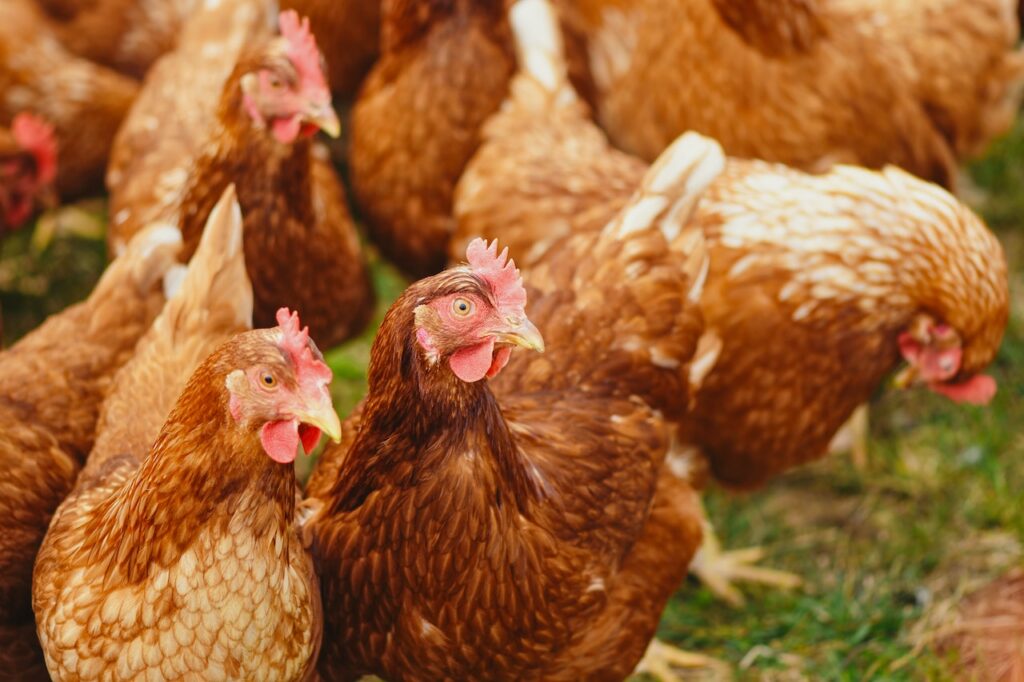
The number of farms using insect protein is still minuscule, but Gilad predicts massive growth in the coming years. FreezeM is now collaborating with Hermetia, a partner in Germany, to provide large-scale customers who want thousands of packages a day.
“The insect protein industry is in its infancy so its proportion of the total animal feed market is close to zero at the moment,” says Gilad.
“We’re not even scratching the surface. The entire animal feed market is half a trillion dollars per year. But insect protein is only just beginning to be incorporated into animal feed.
“However it is growing rapidly and is expected to reach $3 billion a year in 2030 with an annual growth rate of 30 per cent.
“So far most of it is going into pet food. There are already over 40 brands of dog and cat food that have an insect base, and it’s a $70 billion industry.
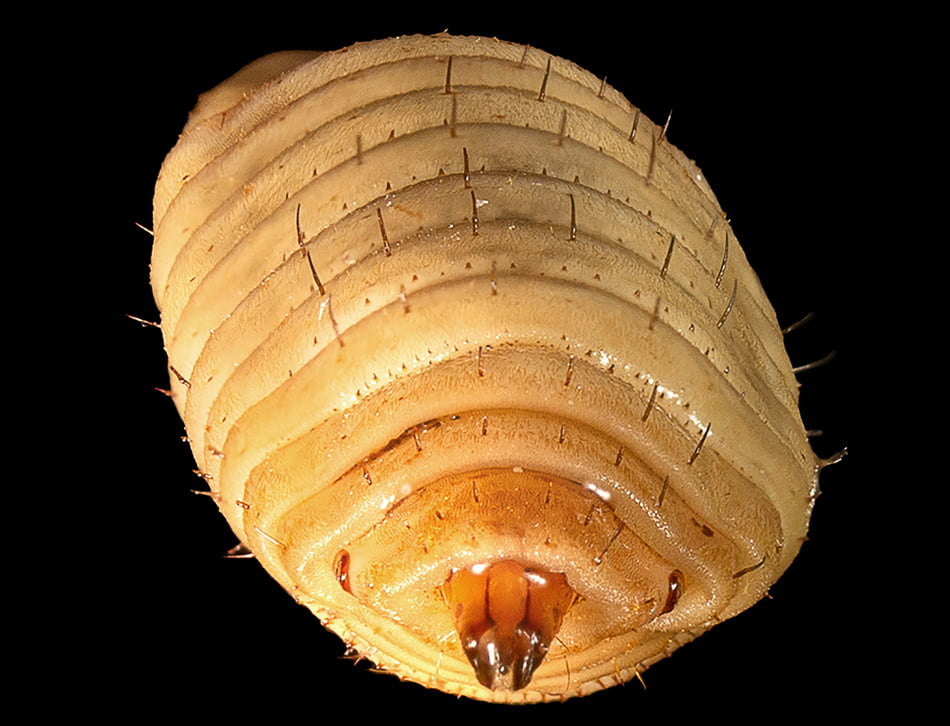
“We need to change now and this is the solution. Take the waste, turn it into protein and feed the farm animals with it.”
And what about people eating insects? “If you look back, lobsters, now considered a premium food, used to be a food for prisoners. And people in the Western world didn’t eat sushi until recently.
“So you do see changes in what people eat, but I don’t think it will happen that fast with insects.
“Even if I could convince you that it’s good to eat insect protein, there’s a yuck factor. People find it disgusting.
“But people are happy with a salmon that ate insects, or a chicken, or its eggs. And they’re happy to feed their dog with insects.”
Related posts

Israeli Medical Technologies That Could Change The World

Harnessing Our Own Bodies For Side Effect-Free Weight Loss

Missing Protein Could Unlock Treatment For Aggressive Lung Cancer


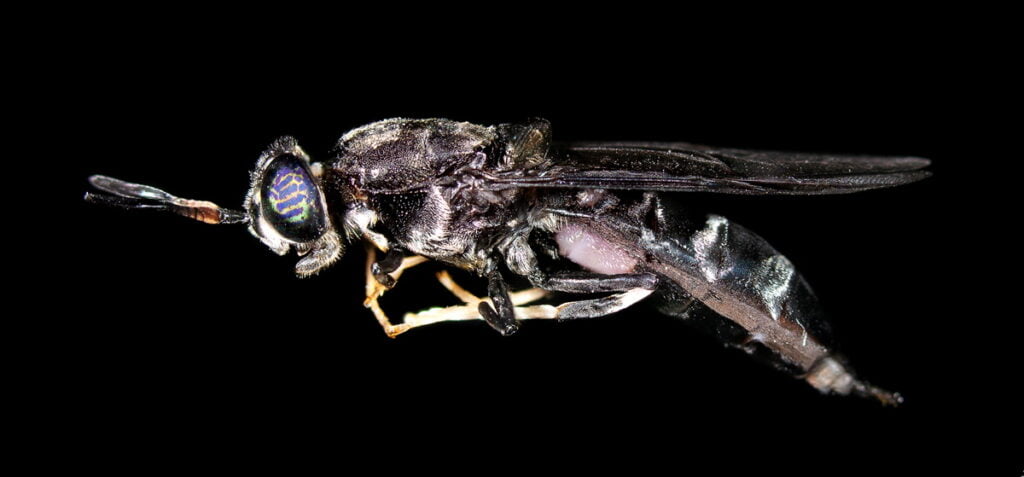

Facebook comments